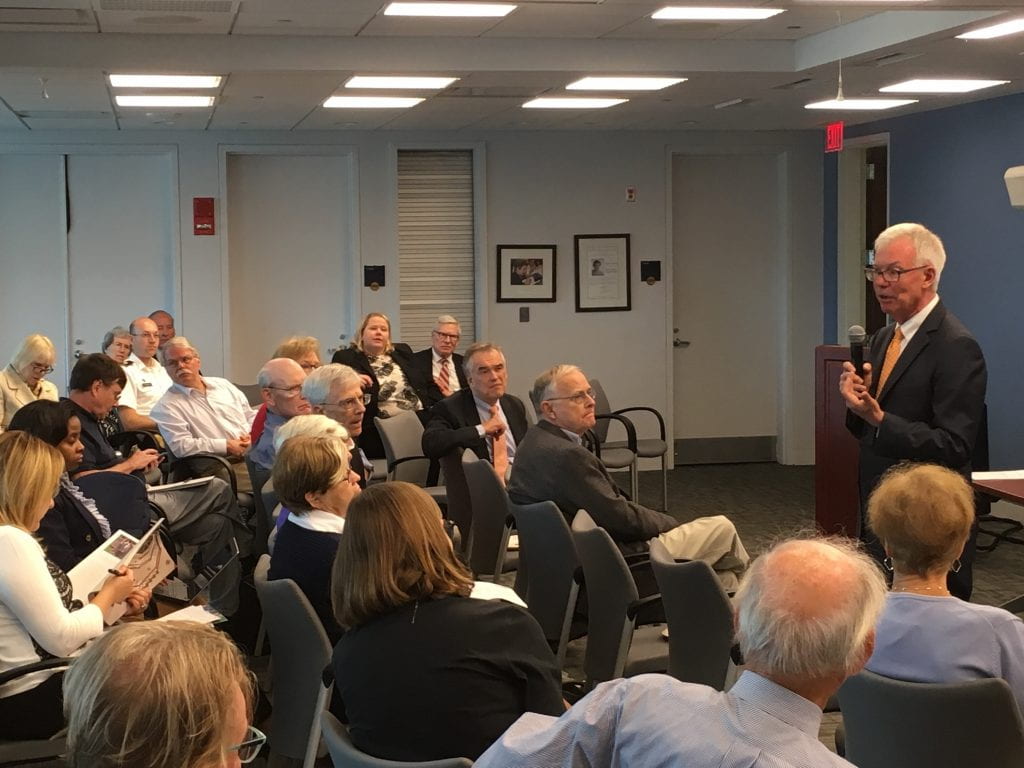WASHINGTON — “One of our goals sounds absurdly simple: increase knowledge of Asia among U.S. leaders.”
That was how Michael Gilligan described the mission of the foundation he leads, the Henry Luce Foundation, adding, “Asia matters to all of us.”
One of the foundation’s best known programs, the Luce Scholars, has sent more than 700 young Americans to spend a year in Asia, and Gilligan said many participants describe the experience as “transformational.” Unlike many Asia programs, the Luce Scholars seeks young people who show high promise of leadership but who “don’t know about Asia” when they apply, according to Gilligan.
“What we are really interested in,” he explained, “is cross-cultural learning.” That, he said, should lead to “a more informed, outward-looking nation.” An important people-to-people program, Luce graduates have moved to leading positions in government, NGOs and journalism.
He noted that when the program began in 1974, even as the U.S. had deployed hundreds of thousands of troops in Southeast Asia, very few American universities offered majors in Asian studies, even Chinese. Today, Gilligan said, the Luce Foundation is the largest funder of Southeast Asian study programs at U.S. universities.
While the foundation works with hundreds of higher education institutions, it has found a special affinity with smaller liberal arts colleges, seen in a special initiative on Asian studies and the environment:
“Liberal arts colleges are the right scale,” said Gilligan. “The next generation of environmental leaders seem to be coming from liberal arts colleges.” Adding that he worried about a “tilt to elite institutions,” he noted many liberal arts colleges liberal arts also have a significant number of students who are the first in their family to go to college.
The foundation also focuses on “a small group” of campuses that produce future diplomats, including Georgetown, George Washington University – and USC, with its Center on Public Diplomacy.
Reflecting the Luce family’s history of missionary work, the foundation also supports programs that advance understanding of religion through what Gilligan called “smart reporting,” with grants to public broadcasting and to The Atlantic.
Gilligan identified one Foundation priority that was a departure when it began: a program to encourage more women to study STEM subjects at universities. Funded by a bequest by Clare Boothe Luce, he said the program began in 1989, and almost 2,000 women have been supported by the foundation.
This month’s forum was presented in partnership with the Public Diplomacy Council and was hosted by George Washington University’s Elliott School of International Affairs.
The next lunch forum will be on Monday, November 7, the day before the U.S. election, and the subject will be how China is covering American politics. Details and RSVP are available here.
